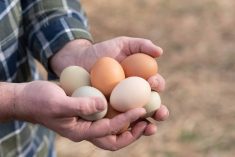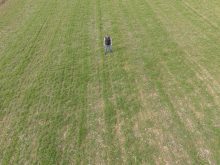In 2019, the Standing Committee on Agriculture and Agri-Food released the results of its study looking at the issue of mental health in the agriculture sector. The report, “Mental Health: A Priority for Our Farmers,” included 10 recommendations to better prevent the onset of mental health problems in Canadian farmers and better support those who face these challenges.
Also, the hearings provided insight into the initiatives to support farmers who face mental health challenges: current initiatives did not meet the mental health needs of farmers. Additionally, it was noted that access to mental health care was limited in rural areas, health professionals didn’t have a proper understanding of the unique challenges of farming and current efforts to help farmers were not co-ordinated across the country.
The committee recommended the federal government co-ordinate, at the national level, current initiatives and various research and prevention efforts focused on the mental health of farmers. It also recommended providing more resources to address the root causes of mental health issues by promoting public awareness about the value of farming and giving the sector adequate economic support.
Read Also

Avoid these thought traps when investing
Investing for Fun and Profit: Let’s review a list, by renowned fund manager Peter Lynch, of the most dangerous things that stock market investors can say to themselves, or to others.
It’s almost four years since these recommendations were made. I’d like to know, have they made a difference?
There has definitely been an uptick in the number of press releases that have crossed my desk this past year announcing new initiatives and resources for supporting mental health and well-being in agricultural communities.
Latest initiatives, supports
Last December, for instance, FCC released Rooted in Resilience, a new mental health publication designed for Canadian farmers and written by mental health experts. The booklet offers some great tools like the mental health dashboard, which can help you determine stress levels, check in and evaluate if some “self-maintenance” would be helpful, plus strategies for self-care.
It also covers issues like burnout and intergenerational relationships, tips on managing your emotions and many more strategies for bolstering your well-being. Many stories are about real farmers and their struggles, triumphs and strategies. You can find it at the FCC website and it takes less than an hour to read.
Last November, a new, not-for-profit organization was launched called The Canadian Centre for Agricultural Wellbeing. Its purpose is to support farmers and their families with what the organization is calling a “research-to-action” approach to mental health.
According to its website, the centre brings together national and global leaders in the agricultural mental health field to conduct cutting-edge research to develop “evidence-based community-informed programming and education to address wellbeing-related challenges amongst Canadian farmers.”
The organization is having its first National Symposium on Mental Health on March 8, 2023. It’s being held online and is free of charge. The symposium is being held to connect farmer mental health groups, researchers, government officials and policymakers, members of Canada’s agricultural community including agricultural associations and producer groups, individual advocates and farmers to “address the challenges and opportunities of the farmer mental health movement across the country.” I have already reserved my spot.
Just last week, on January 26, it was announced the Farmer and Rancher Mental Health (FARMh) initiative launched mental health resources for the agriculture community. Based on research findings from phase one of the program, the patient-oriented research project recently helped launch a mental wellness network for people in Saskatchewan’s agriculture community. Researchers continue to use data from phase one to build a mental wellness toolbox.
The FARMh initiative, which began in January 2021, used data collected from more than 100 farmers and ranchers on effective mental health supports, their experiences and their recommendations on accessing this kind of help. The information was used to launch the SaskAgMatters Network (www.saskagmatters.ca), which bridges the gap between agriculture producers and mental wellness supports for the Saskatchewan agriculture community, according to the website.
The network also offers free mental health support services for Saskatchewan agriculture producers or their support person. Each person is eligible for six, free, one-hour sessions with trained and registered mental health professionals who have a background in farm culture.
Manitoba and Alberta offer similar supports.
The Manitoba Farmer Wellness Program has farm-focused professionals providing confidential counselling and support to Manitoba farm families. The program offers up to six free sessions. “Dedicated to building hope, health and resilience in Manitoba’s agriculture community,” is the program’s vision statement.
In Alberta is AgKnow and the Alberta Farm Mental Health Network. The farmer-led network says it is building tangible tools and services tailored to farmers’ needs based on resources and tips from farmers. Free counselling sessions are available for farmers and their families.
Mental health movement?
Counsellors who understand farm culture, programs and networks being led by and based on direct feedback from producers in the communities those programs are supporting, a national organization for agricultural well-being with a research-to-action approach to mental health — is this real change we’re seeing? Is a farmer mental health movement happening?
Considering it is farmers who are asking for change, helping each other, taking the lead and making it happen, I think we are on the road to building resiliency and well-being in Canadian farmers and their families.
More importantly, what do you think? Do you see a change in the mental health supports available to you and your family? Would you consider using these tools if the need arises? Please drop me a line at [email protected].
Wishing you well,
Kari















